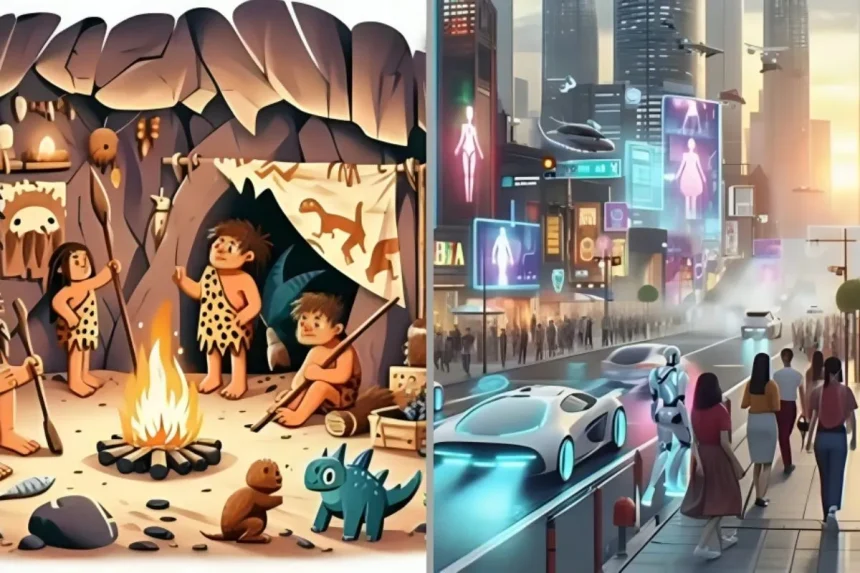Throughout history, human life has always been characterized by its constant evolution and adaptation to new technologies. Each period from the Stone Age to the Information Age saw its share of innovations, each met with resistance and doubt. This pattern of initial rejection followed by eventual acceptance is in evidence which means that we are flexible. Today, we stand on the threshold of a new era dominated by artificial intelligence (AI), and debates about its use echo the past. Technology adoption cycle
The Stone Age and beyond
Humanity’s journey began with the first stone tools. These early innovations were revolutionary, but they were likely to meet resistance from older methods. As we progressed through the Bronze and Iron Ages, each innovation and technique represented a fundamental advance, but acceptance was never immediate.
The change in printing presses
Fast forward to the 15th century, when Johannes Gutenberg invented the printing press. This discovery made knowledge and literature available to everyone. But there was also opposition from scientists and academics who feared the loss of their craft and the possible spread of misinformation. Over time, the printing press became a cornerstone of education and culture, its benefits far outweighing initial concerns.
The Computing devices
In recent history, the introduction of computing devices in education generated heated debate. Initially, calculators banned from tests were seen as a threat to the acquisition of mathematical skills. Critics argued that relying on these devices would destroy students’ manual skills in performing basic mathematics. Today, calculators are an integral part of education, recognized for their ability to improve learning and save time for solving more complex problems.
From Fountain Pens to Pencils: Neat handwriting
Similarly, the transition from fountain pens to pencils in schools was marked by resistance. Fountain pens, once the standard for neat handwriting and formal writing, were replaced by pencils for their practicality and ease of use. Initially, there was a belief that pencils were inferior, but over time, they proved their worth, especially for young learners.
The AI era: The rise of AI in Content writing
We are now in the midst of a new technological development: the rise of AI. AI-powered blogs and articles are quickly becoming more sophisticated and capable of high-quality content. Despite the benefits, there is a huge backlash. Concerns range from the potential loss of human creativity and jobs to the spread of AI-induced misinformation.
The present situation
Currently, AI products are generally not allowed to be used in certain academic and professional settings. Just as calculators and pencils were once banned, AI faces a similar fate. Critics argue that relying on AI undermines human skill and creativity, echoing stories told in earlier times.
Predicting the future: acceptance and integration
Ten years from now
Looking ahead, it is likely that the next generation will view our current apprehensions with bemusement. Just as we laugh at the thought of banning the printing press, calculators, or pencils, future generations will find it hard to imagine a time when AI was not an accepted part of content creation. The benefits of AI, including efficiency, consistency, and the ability to handle tasks, will eventually outweigh the drawbacks.
Get More Updates: https://www.timelinetale.com/


